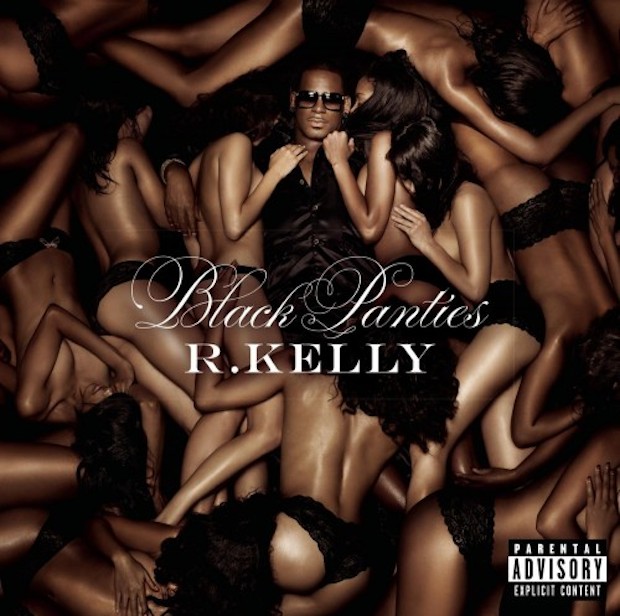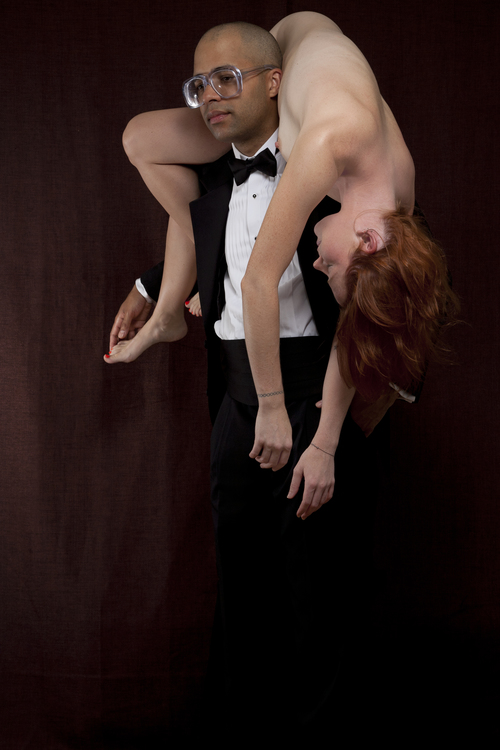At the end of last year, Robin Thicke took a lot of heat for both the lyrics of his song, “Blurred Lines,” and the accompanying video. The latter is a transparent instance of a very common strategy for making men look cool: surround them with beautiful and preferably naked women.
It seems especially effective if the men in question act unimpressed and unaffected by, or even disinterested in, the women around them. It’s as if they are trying to say, “I am so accustomed to having access to beautiful, naked women, I don’t even notice that they’re there anymore.” Or, to be more vulgar about it, “I get so much pussy, I’ve become immune.”

The video for “Blurred Lines” was particularly egregious, but we see this all the time. Here’s a couple more examples, featuring R. Kelly and Robert Pattinson in Details:


This is all to introduce a satirical series of photographs featuring performance artist Nate Hill who, on the mission page of his Trophy Scarves website (NSFW), writes: “I wear white women for status and power.” And, so, he does. Here are some examples:



Hill brilliantly combines a tradition of conspicuous consumption—think mink stoles—with a contemporary matrix of domination in which white women are status symbols for men of all races. It’s not irrelevant that he’s African-American and the women he chooses are white and, yes, it is about power. We know it is because women do it too and, when they do, they use women below them in the racial hierarchy. Remember Gwen Stefani’s harajuku girls? And consider this FHM Philippines cover:

I’m amazed at the ubiquitousness of this type of imagery and our willingness to take it for granted that this is just what our visual landscape looks like. It’s social inequality unapologetically laid bare. We’re used to it.
Somebody—lots of somebodies, I guess—sat around the room and thought, “Yeah, there’s nothing pathetic or problematic about a music video in which absolutely nothing happens except naked women are used to prop up our singer’s masculinity.” The optimist in me wants to think that it’s far too obvious, so much so that the producers and participants would be embarrassed by it. Or, at least, there’d be a modicum of sensitivity to the decades of feminist activism around the sexual objectification of women.
The cynic in me recognizes that white supremacy and the dehumanization of women are alive and well. I’m glad Hill is here to help me laugh about it, even if nervously. Gallows humor, y’all. Sometimes it’s all we got.
This post originally appeared on Sociological Images, a Pacific Standard partner site, as “’Trophy Scarves’: Race, Gender, and the Woman-as-Prop Trope (NSFW).”



